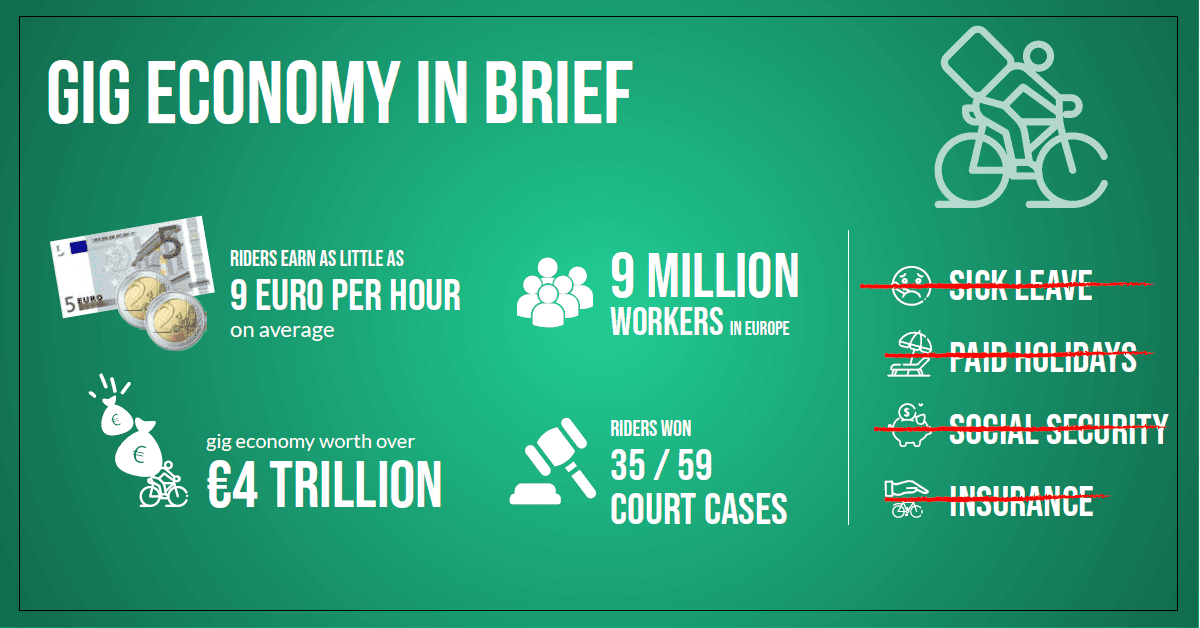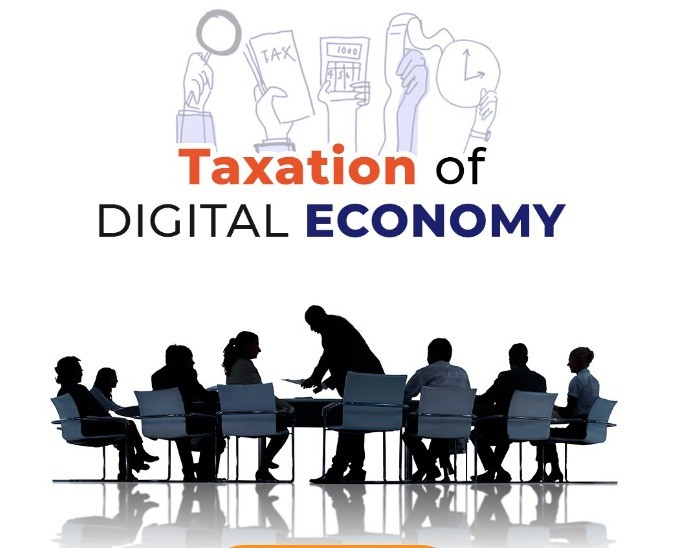The Wild West is not just a dusty corner of history; it’s alive and thriving online. In the vast plains of the internet, where tech giants roam free and startups sprout like wildflowers, challenges of regulating digital economy platforms loom large. Every day, virtual sheriffs try to impose law and order, but the rules of this game change faster than tumbleweeds in a tornado. I’ve saddled up to guide you through this rough terrain, explaining why fair play in this digital frontier takes more than just a quick draw. Join me as we navigate the minefield of creating rules that protect and serve in the age of clicks and swipes.
Understanding the Complexities of Digital Market Regulation
The Evolution of Antitrust Laws in the Tech Industry
We face big challenges when we keep tech giants in line. They’re like Wild West cowboys. They sometimes ignore the rules to get ahead. We use antitrust laws to stop this. These laws keep the market fair for everyone. The rules used to work for old companies. But tech firms are different. They move fast and are all over the world.
Antitrust laws stopped big businesses from controlling a market in the past. Now, these same laws must adapt for the digital age. Tech giants can act fast. They can get too much power before we notice. We need strong and sharp laws that move as fast as they do. We must watch these tech firms closely. We must make sure they play fair.
Crafting Laws for Competitive Fairness in the Digital Marketplace
Rules for fair play in the digital market are not easy to make. Tech products don’t always fit in old categories. What’s more, digital platforms connect the world. This makes it hard to apply one country’s rules to them. The key is to make laws that work across borders. These laws must protect you and me, the buyers and sellers.
For example, with data privacy, we need to prevent leaks and misuse. If our personal info gets out, it can harm us. So, we fight for laws that keep our data safe. They must be tough on those who break these rules. Laws must also keep digital markets open. Small businesses should have just as good a chance as the big players.
Tax avoidance is another issue. Some tech firms try to skip paying their fair share. This hurts the places where they do business. Fair tax laws are a must. They make sure tech firms add to the economy, not just take from it.
And let’s not forget the gig economy workers. They drive our Ubers and deliver our food. They too need fair laws for work. Laws should protect them just like any other workers.
Even when a tech firm seems to follow rules, we must stay sharp. Monopolistic behaviors can hide behind fancy tech talk. We need clear rules that make them play nicely with others. We must make sure no one gets too much power.
Cross-border data flows add another layer. Data travels all around the world. Laws must watch over all this to keep our info safe.
And then there’s artificial intelligence (AI). AI makes some choices for us online. Consumers need protection from AI’s mistakes. We must push for laws that make AI’s choices clear to us.
Indeed, it’s a minefield. Many dangers lurk in the shadows of the digital world. Smart and strong laws keep us safe. These laws must be fair and always getting better. This way, the digital economy stays a place of chance for all. It’s a tough job, but worth fighting for. We build a better, fairer digital future for everyone this way.
Securing Data Privacy in a Borderless Online World
International Data Protection Standards and Global Compliance
Rules for data privacy differ worldwide. Each country has its own way of handling information. This makes global compliance tough. Digital platforms today have no borders. They stretch across the globe. But user data laws are not one-size-fits-all. So, digital platforms face a huge task. They must keep up with many legal requirements to protect users.
Let’s take the General Data Protection Regulation (GDPR) from the EU. GDPR sets rules on how to handle personal data. It applies to all firms in the EU and those dealing with EU citizens. Now, if a digital platform in the US has EU users, it must obey GDPR too. This is one example of how rules differ and why platforms must stay alert.
Cross-border data flows add another layer to this puzzle. Data flows freely between countries on the internet. Yet, the laws of the land still apply. Firms must ensure data safety across borders, keeping pace with different privacy needs. They should update their policies regularly. Users trust them with personal details, after all. It’s the firm’s job to keep that trust.
Pushing for Greater Algorithm Transparency and User Privacy
Algorithms drive digital platforms. They shape what we see and do online. Often, we don’t know how they work. Yet they can deeply impact our lives. This lack of openness is a problem. Why? Because it can lead to bias and misuse of data. It’s like a secret recipe that affects your health but you can’t know the ingredients.
Transparency of algorithms means making their functions clear. Users should know how a platform decides what to show or hide, and why. This empowers them. It lets them make better choices. When we talk about transparency, it’s about control too. Platforms must let users control their own data.
User privacy online is under threat. Some firms exploit personal details for profit. Many users feel they don’t have control over their own data. Some don’t even know how much data they are giving away. Better rules and more user control can change that.
Let’s remember: Being clear and fair with user info is not just nice – it’s key. It’s about protecting the rights people have, even online. Firms should step up. They should handle personal details with great care. They should also show users what goes on behind the scenes. After all, trust is not given; it’s earned. And in the Wild West of the digital economy, securing trust is gold.
Recognizing and Upholding Gig Economy Workers’ Rights
Creating Fair Labor Standards for Platform Economy Employment
Let’s talk jobs in the gig world. You grab rides, get food, find places to stay all on apps, right? Well, the folks who drive, cook, and rent out need fair work rules, just like in other jobs. But in the gig economy, things are fuzzier.
First up, pay. People need to earn enough to live on. And not just any how-much. We mean steady, fair wages. That’s hard when your gig app changes prices like crazy. Then there’s safety. It’s cool to pick your work hours, but what if you get hurt on the job? Usually, gig workers don’t get covered by the company. Now, is that fair? Not really.
Next, what if a gig worker needs time off? Like, if they’re sick or want a break. Tough luck, most times. They stop, money stops. That’s no good. Balance is key. And we’re not just talking work-life stuff. I mean balancing power. The big companies have tons of it, but that leaves gig workers with little. This has to change.
Now it’s not all bad. Many folks like gig work ’cause it gives freedom. They choose when and where to work. And for some, that’s a win. But freedom without safety nets is risky. So we need to make jobs in the gig market safe and humane.
Balancing Flexibility with Worker Protections in the Gig Economy
Flexibility sounds awesome. Work in your PJs, start when you want, cool right? Lots of folks think so. But we gotta watch out. ‘Cause if you’re always “on-call,” life gets messy. So how do we keep the cool parts but ditch the messy stuff?
We need rules. Fair ones that protect workers, but also keep that sweet freedom rolling. Picture this: you drive for an app. You want to work just mornings. Cool, but what if the app bosses say “Nope, work nights or you’re out”? Not fair. So, there has to be a middle ground.
We also need to talk benefits. Sick days, health stuff, saving for when you’re old. Usually, gigs don’t offer these. That’s a big problem. Workers need support, not just cash for today. If a worker gets hurt or sick, they should be covered. Like everyone else with a job.
Let’s not forget respect. Gig workers make our lives way easier. They deserve big thanks. They also deserve rights. Like being treated well, being listened to, and being able to share ideas without fear.
Keeping gig work cool and also safe, fair, and full of respect? That’s our challenge. But it’s not just a good move; it’s the right move, for everyone who works, and everyone who needs the work done. Let’s make sure the wild west of digital work tames down, but keeps the spirit that drew us to it.
Addressing Tax Challenges in the Digital Economy
Combating Tax Avoidance by Digital Firms and Ensuring Fair Contribution
In the wild web of the digital world, keeping up with the swift tech giants is tough. They make money everywhere but often pay taxes nowhere. It’s like playing whack-a-mole with clever players who know all the hidden tunnels. The hard truth is, tech firms find ways to pay less by using legal gaps. This is not fair to us, the folks at home.
Why do digital firms avoid taxes? Because they can. They set up shop in low-tax spots and say, “Our profits were made here!” But we know that story isn’t straight. They earn from users all over, yet often the cash box stays empty. This sly move robs our communities. It means less for schools, roads, and health care. It’s a game where they win, and we lose out—unless we change the rules of play.
Changing laws is one answer. We need to shake the tax tree, make it so companies pay their fair share where they really do business. This means global action. We can’t go it alone. All countries need to stand together, make firms pay up fair and square. United, we can shift the balance. We can build a tax system that works for all, not just the big leagues.
The Impact of Digitalization on International Taxation Systems
Our world is more linked now than it ever was, and money moves with a click. Yet, tax systems lag behind—they were made for a time when business had a street address. Today’s trade leaps over borders like they’re not even there. Trying to tax these digital deals? It’s like trying to catch smoke with your bare hands.
What’s the big deal with digital tax? Well, when businesses go online, it’s hard to see where they make their dollars and where they should pay up. The old tax map doesn’t fit our new digital land. We’ve got to draw it again, find ways to tax that fit today’s trade.
Nations across the globe are chatting about this. They’re drawing a plan called the **BEPS**—Base Erosion and Profit Shifting. It’s about stopping firms from shifting their profits to pay less tax. BEPS aims to close those gaps where money slips through. This plan could fix things, make sure everyone pays a fair piece of the pie.
To wrap it up, the digital frontier is vast and full of promise, but it’s also a place where the old rules sometimes fail us. By working together, we can pen new rules that ensure tech wizards, startups, and every player in between all play fair. It takes guts, brains, and heart—it’s a tall task, but one we can tackle head-on for a brighter, fairer digital tomorrow.
In this post, we tackled tough issues in the digital world. We started by digging into digital market regulation. Let’s remember how antitrust laws have changed tech and how new rules aim for fair play online.
We then looked at securing data across borders. We explored global rules for data safety and the call for clearer algorithms and better user privacy.
Next, we talked about the gig economy and worker rights. We saw the need for better work standards and how to keep jobs flexible yet fair.
Finally, we covered how digital businesses pay taxes. We reviewed the fight against tax dodges and how digital trends shift global tax rules.
To wrap it up, this digital landscape is tricky but crucial. We need smart, fair laws for a safe and just online world. Your thoughts?
Q&A :
What Are the Main Regulatory Challenges Facing Digital Economy Platforms?
Due to their global reach, digital economy platforms often face complex regulatory environments as different countries have their own rules pertaining to data protection, taxation, and consumer rights. Balancing innovation with the protection of stakeholders and ensuring fair competition among businesses constitute some of the primary challenges.
How Does International Jurisdiction Affect the Regulation of Digital Platforms?
With digital economy platforms operating across borders, it’s tricky to determine which country’s laws apply. There’s a constant challenge in enforcing regulations when a platform from one jurisdiction operates in another, creating discrepancies in legal standards and enforcement practices.
What Role Does Data Protection Play in Regulating Digital Economy Platforms?
Data protection is a significant regulatory area for digital platforms, which often collect vast amounts of user data. Ensuring the privacy and security of this data, as well as compliance with laws like GDPR in Europe, adds a layer of complexity to platform operation and regulation.
How Do Digital Economy Platforms Impact Traditional Market Regulation?
Digital economy platforms disrupt traditional markets, often necessitating updates to existing regulations. Monopolistic behaviors, gig economy worker rights, and new forms of consumer transactions challenge the applicability of old market rules and call for innovative regulatory approaches.
What Regulatory Approaches Are Being Considered to Manage the Growth of Digital Economy Platforms?
Policymakers are exploring a range of approaches, including updating antitrust laws to better address platform monopolies, creating new frameworks for gig worker rights, and implementing digital services taxes to ensure platforms contribute fairly to local economies. The challenge lies in creating regulations that are flexible enough to adapt to rapid technological advancements.
